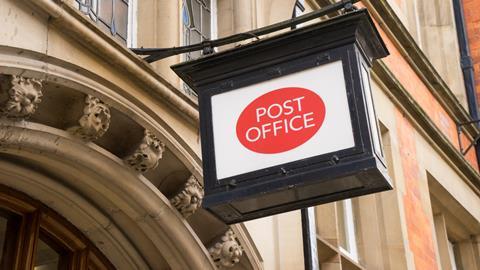Bankrupt victims of the Post Office Horizon scandal are effectively missing out on most of their compensation because of the legal burden of their ongoing debts, it has emerged.
The inquiry into the Horizon IT matter yesterday heard that postmasters made bankrupt after being wrongly prosecuted are receiving a fraction of what they are due because the majority of the money must be paid to the official receiver.
Tim Moloney KC, instructed by national firm Hudgell Solicitors, said in one case a client was awarded £259,000 through the historic shortfall scheme but ended up being offered just £8,000.
Moloney explained this particular applicant had run a successful postmaster business for 20 years before his life was ruined by a false conviction which led to his mental health deteriorating and his being unable to pay his mortgage. In another case, a victim’s award of £25,000 was reduced to £4,500 after deductions paid to the official receiver.
Moloney said the receiver has no authority other than to settle the debts of the bankruptcy in full, but this intervention means victims receive little to no compensation for the miscarriage of justice that caused their bankruptcy in the first place.
The barrister added: ‘It appears that the shortfall scheme takes no account of whether the root cause of the bankruptcy was or may have been generated by the Horizon software.
‘Compensation is intended to put the claimant in the position they would have been if they had not been adversely affected… many of the debts accrued by these people which led to bankruptcy were caused by the shortfalls [wrongly flagged up by Horizon].’
The compensation award is then ‘swallowed up’ by legal obligations to repay debts, and Moloney urged the Post Office and the government to consider this unfairness when deciding how much to offer. ‘That seems to be the most straightforward way that both [the receiver and the victim] are taken care of.’
Earlier in the day, lawyers representing the Post Office said that it was committed to paying ‘reasonable’ legal fees to those representing postmasters. This commitment was repeated as part of the government’s announcement earlier this week that the 555 victims not eligible for the HSS would have access to their own compensation scheme, but their lawyers would be limited to £900 per claimant.
Moloney did not specify what reasonable fees might consist of, but highlighted three examples where the Post Office’s initial settlement offer had been much smaller than the amount finally agreed at good faith meetings where claimants were represented and appropriate heads of claim are brought up.
In one case, the postmaster was offered £47,000 through the scheme but this was increased to more than £140,000 after it emerged the first offer did not take account of the victim’s loss of future earnings. Another case saw the initial offer of around £4,000 increased to £63,000 once distress, loss of earnings and inconvenience were raised at the good faith meeting.
Lawyers representing claimants will argue that without their advice and the commission of evidence such as medical reports – all of which will cost much more than £900 per case – there is the likelihood that many people will be under-compensated if they rely solely on the Post Office and government to offer fair redress.
This article is now closed for comment.




























8 Readers' comments